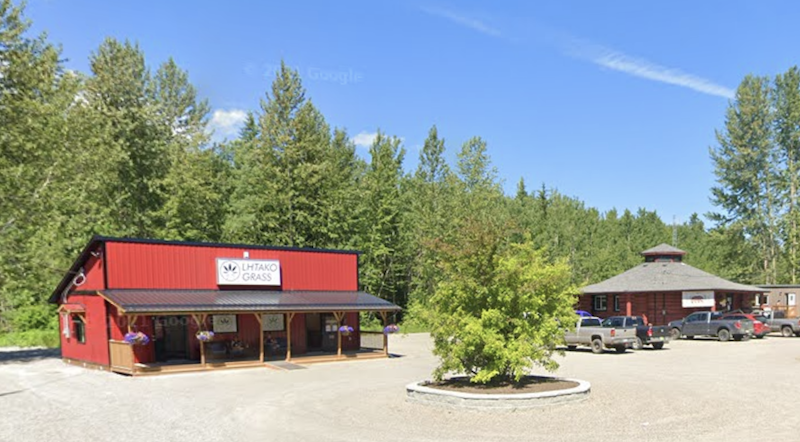News
First Nations slow to sign agreements with BC
Published on May 4, 2022 by John McDonald
 Photo: Google Maps
Photo: Google Maps The B.C. government had high hopes in the early days of legalization of significant Indigenous participation in its cannabis retail distribution system.
Indeed, the government included a special section in the Cannabis Control and Licensing Act allowing for individual agreements between BC First Nations that recognized their sovereignty in such matters.
But while cannabis retailing and production has taken off on some reserve lands, with a few exceptions it has happened outside the government’s framework with an estimate of at least 50 unlicensed retailers and producers selling unregulated cannabis largely in the Okanagan and Shuswap regions.
That success, in turn, has led to a lawsuit filed late last month by a group of cannabis retailers against the Ministry of Public Safety seeking $40 million in damages and a demand for enforcement against their unlicensed competitors
The low-key announcement last month of a cannabis production and sales agreement between the BC government and Lhtako Dene First Nation in Quesnel marks the fourth such deal with an Indigenous nation since the federal legalization of cannabis in 2018.
Chief Clifford Lebrun touted the deal in a press release as an example of how government-to-government agreements with First Nations can be successful. Lebrun said the nation expects to employ six to eight staff in both production and retailing in facilities that will open later this spring.
That follows a similar agreement with the Williams Lake First Nation signed in 2020, a term-limited deal with the Cowichan Tribes signed in 2021 and another with the Snuneymuxw First Nation on Vancouver island signed late last year.
But with close to 200 distinct First Nations, the province has a long way to go before it can come close to large scale uptake by BC First Nations although it doesn’t appear to be for lack of trying.
In January, the government announced the BC Indigenous Cannabis Product program, designed to showcase First Nations cannabis products throughout the provincial retail network.
And like the agreement with Williams Lake, the Lhtako Dene agreement allows for both cannabis production and sales under one licence, something non-indigenous producers and retailers are forbidden.
Lhtako Dene First Nation administrator Ron Rasmussen says he can’t say why other First Nations haven’t embraced Section 119 agreements, only that it’s their right as sovereign governments and they must see better value working outside the provincial system.
But he predicts more First Nations will eventually sign on, as more consumers move toward the legal distribution network. “It legitimizes them,” he adds.
For its part, the Ministry of Public Safety and the Solicitor General remain hopeful more BC First Nations will soon sign on, perhaps forestalling further legal action from non-indigenous cannabis retailers and producers.
“The province is in various stages of discussion and negotiation with a number of First Nations. We are optimistic that more … agreements will be reached this year, but we are not in a position to say how many or with which nations,” the ministry said in an emailed statement.
Leave a comment on our Facebook page.
© Copyright 2022 Okanagan Z. | About the oz.
Report a Typo or Inaccuracy
We strive to avoid typos and inaccuracies. However, on occasion we make mistakes. We value your contributions and help in correcting them.